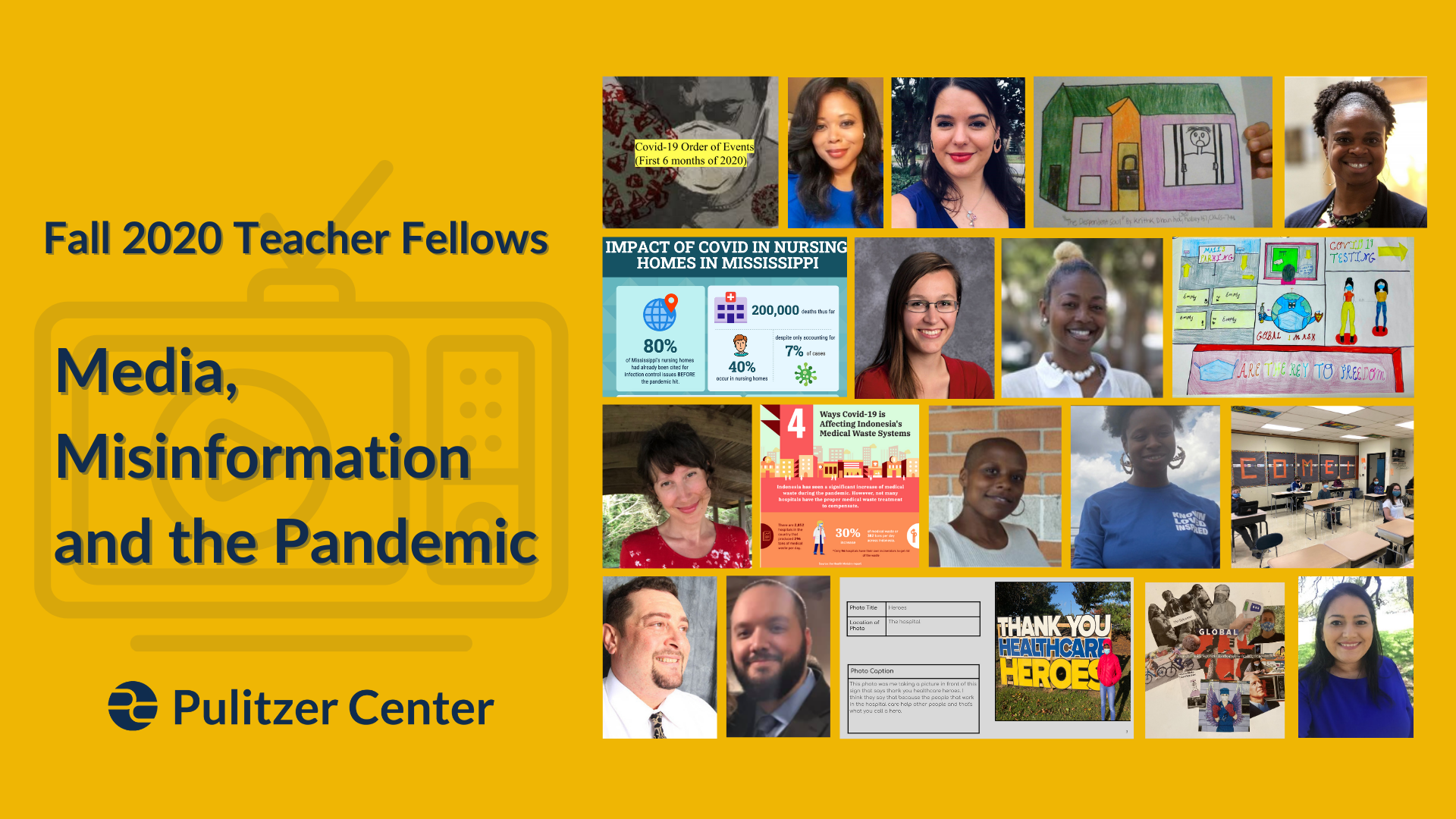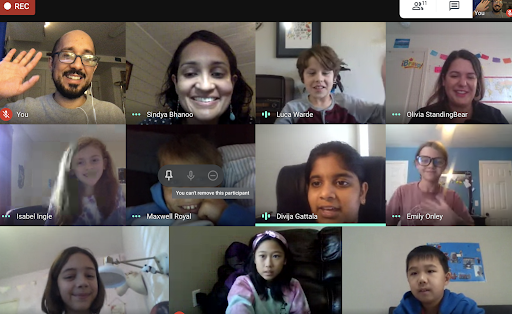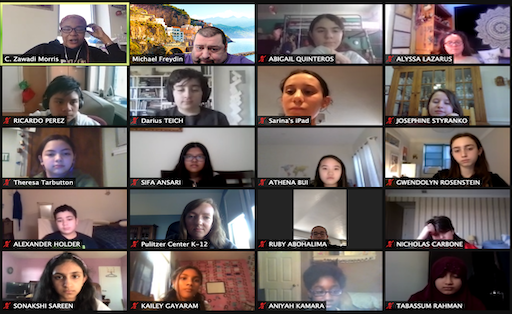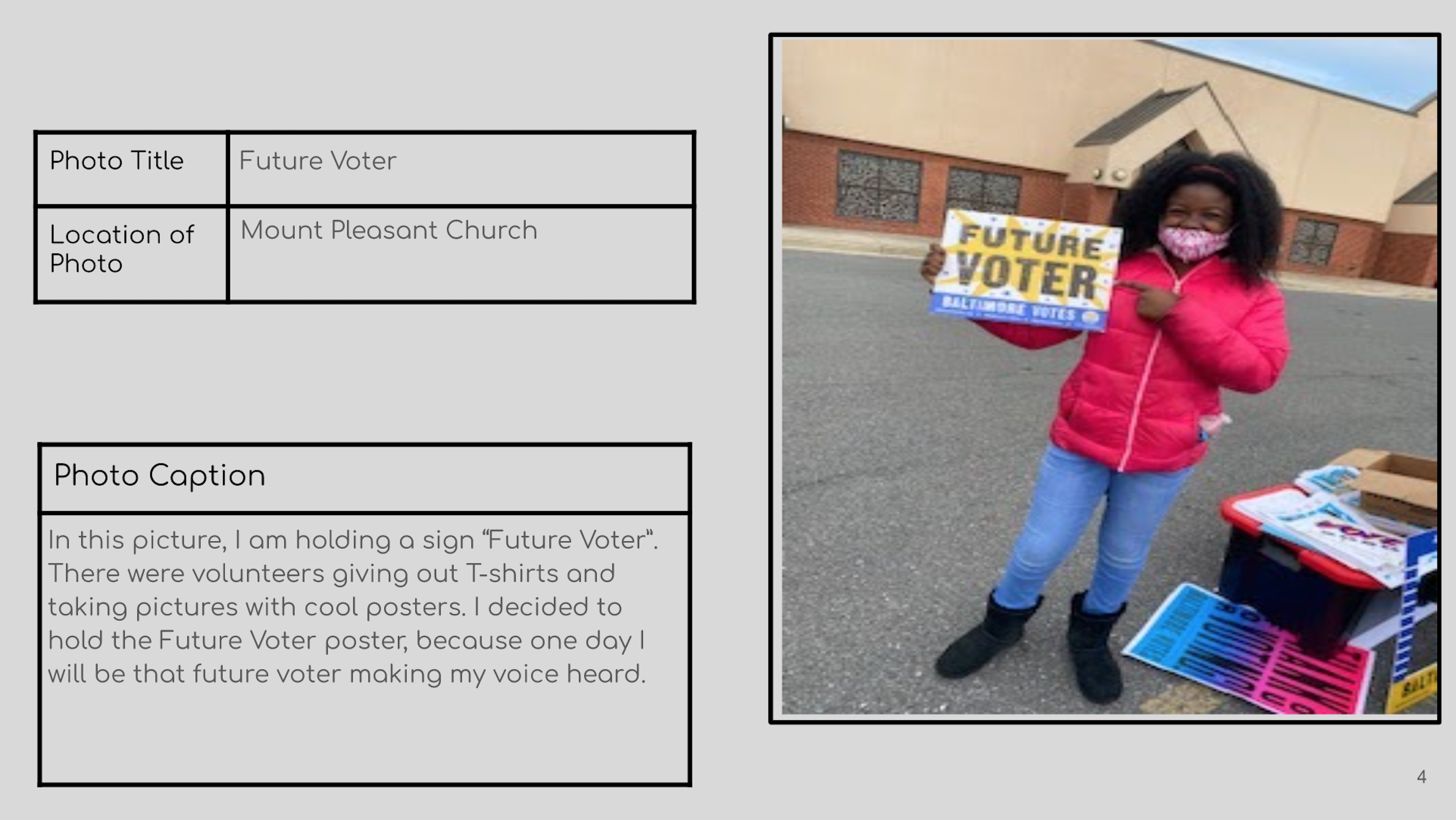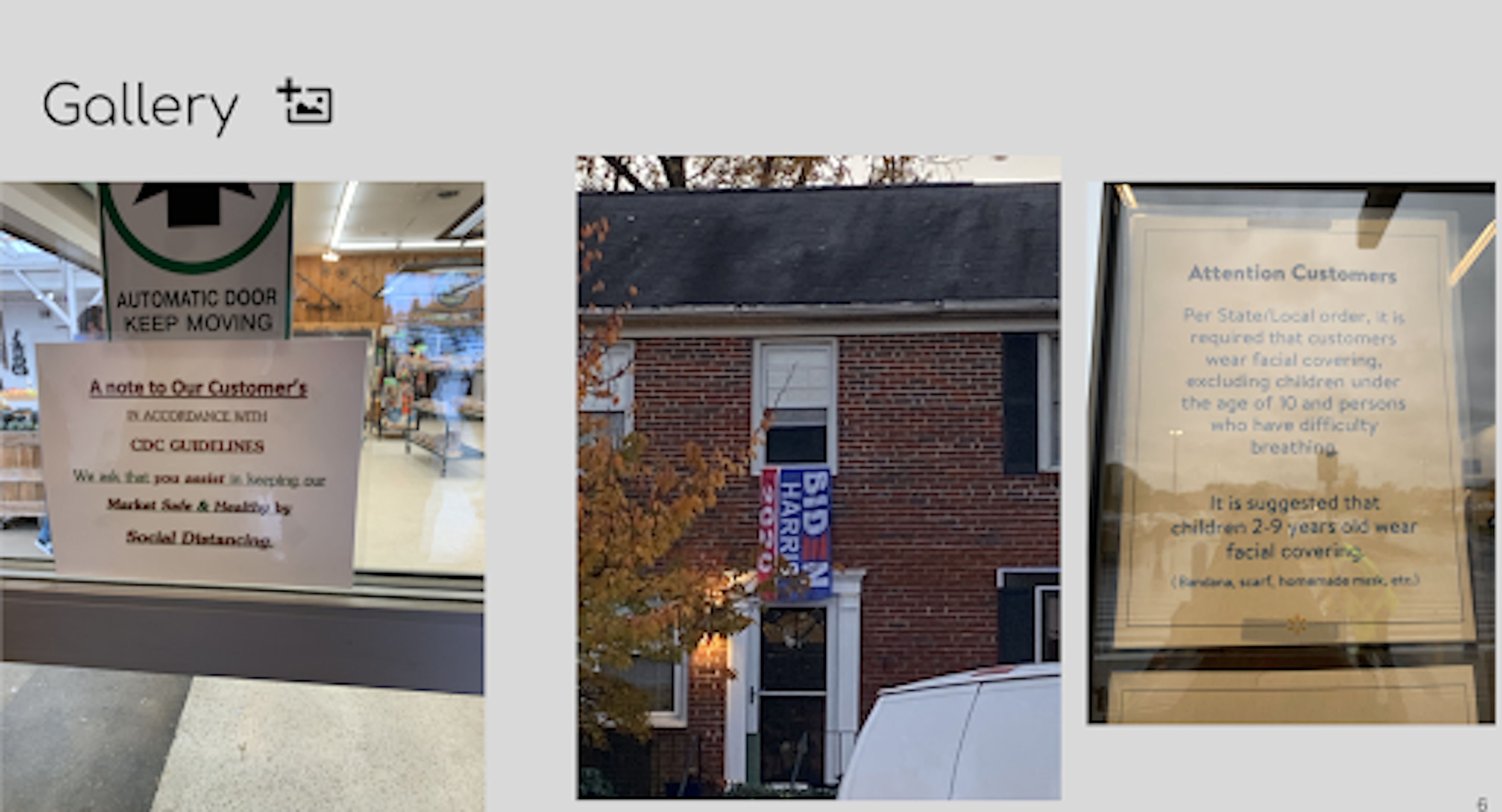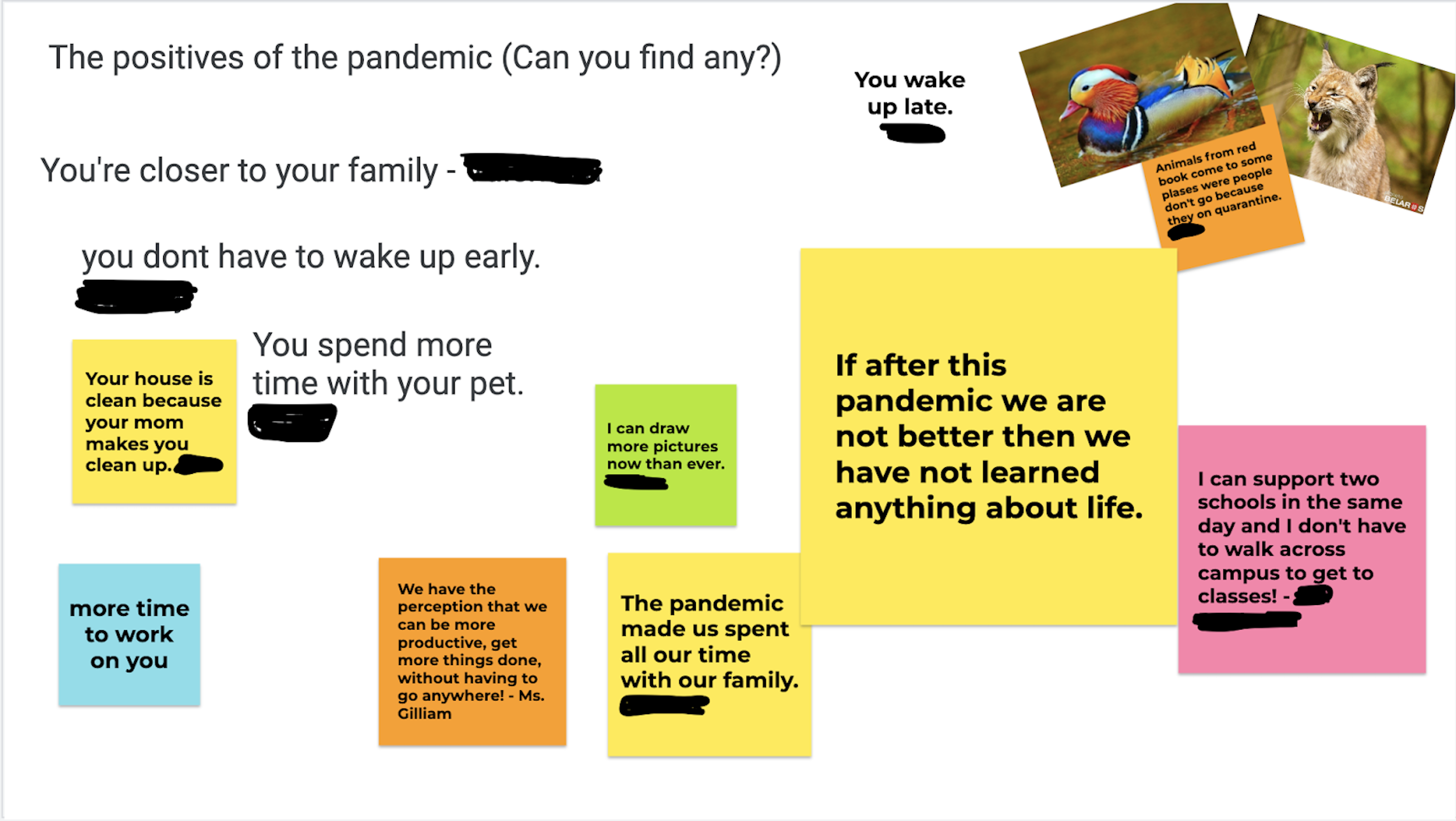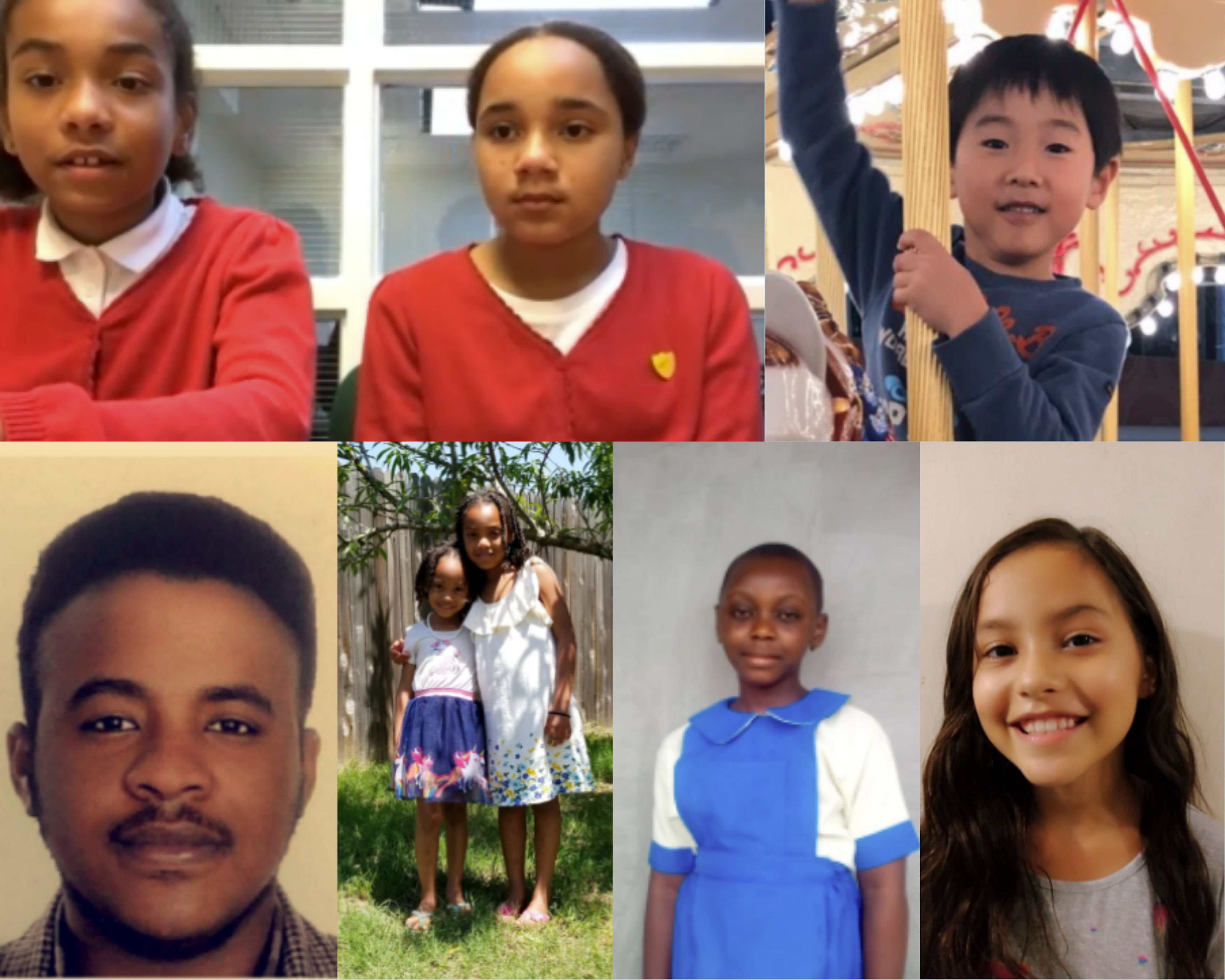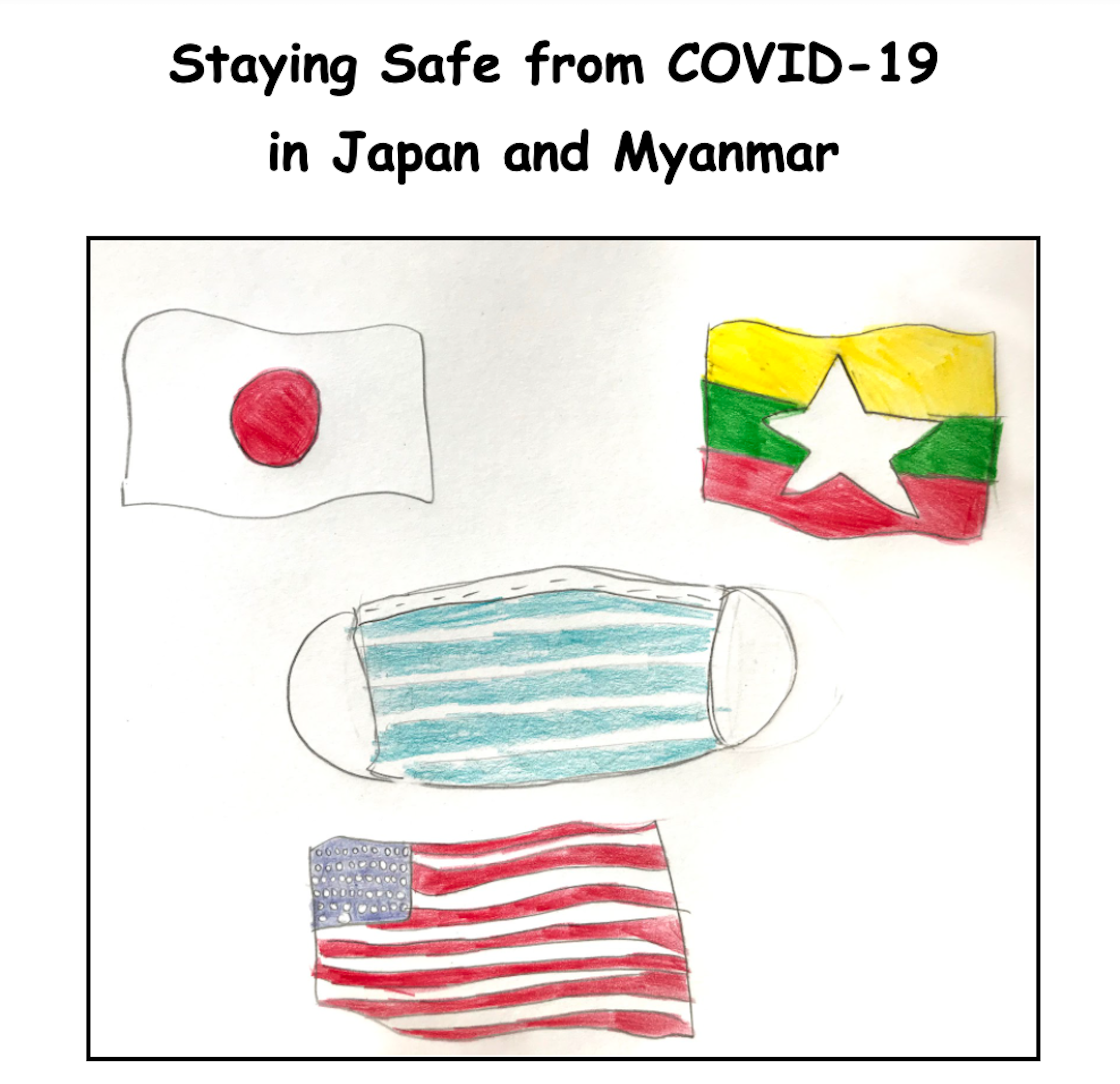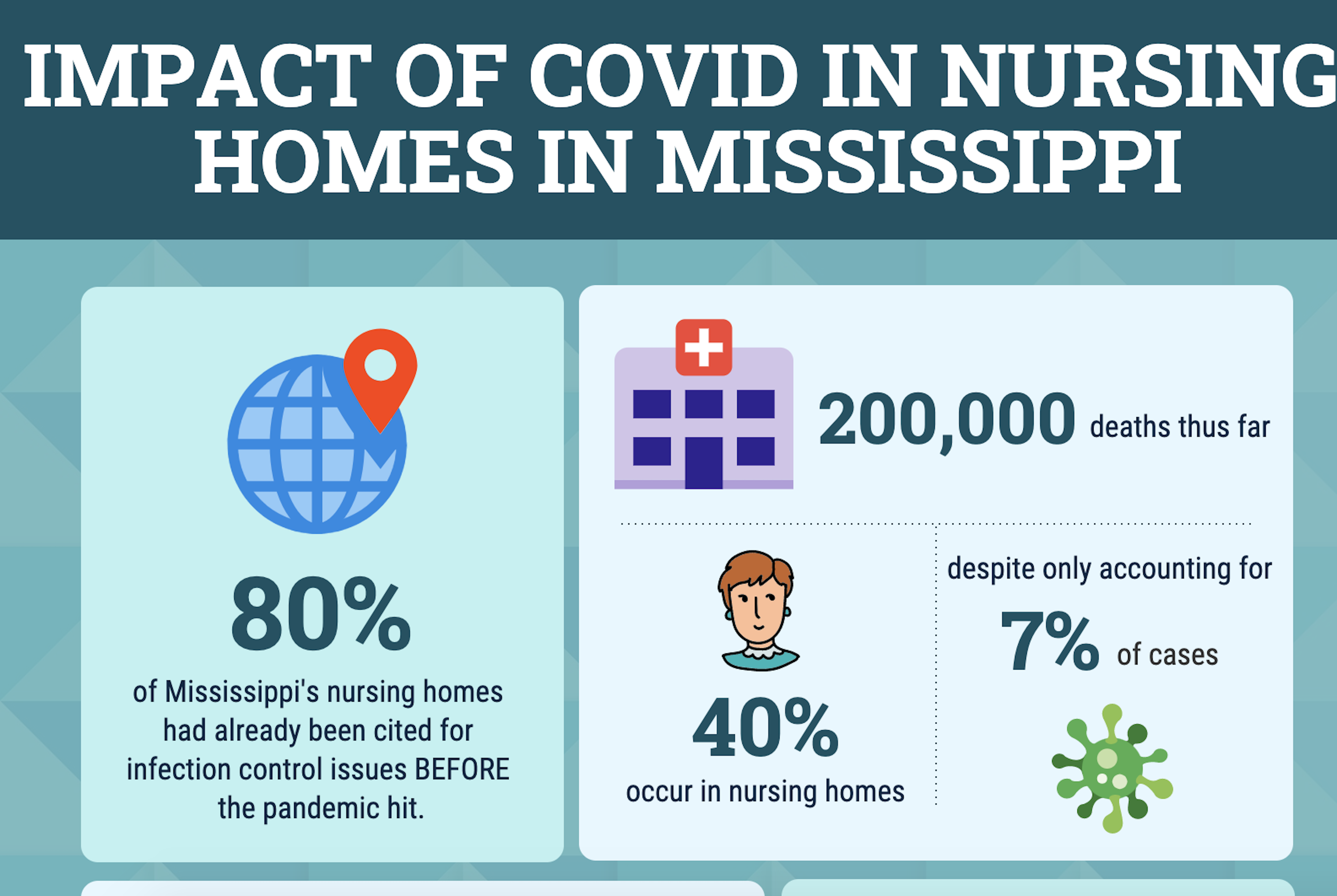This fall, 23 educators from K-12 schools across the United States inaugurated the Pulitzer Center Teacher Fellowship—working with each other, the Pulitzer Center education team, Center-supported journalists, and their students to explore ways that engagement with underreported global news stories can cultivate critical thinking, communication skills, and empathy. Eleven fellows from the Media, Misinformation, and the Pandemic cohort introduced media literacy skills and global news stories on the underreported impacts of the COVID-19 pandemic to nearly 400 students in eight states through original units that guided students in reflecting local connections to global issues through debates, interviews, research projects, expository and creative writing, visual art, and more. Join us in celebrating these educators—and keep reading to explore their units, reflections, and how they spent their time throughout the fellowship!
Fellowship Orientation and Professional Development Workshops:
On Saturday, September 26, 2020, all 23 teacher fellows completed an orientation with Pulitzer Center’s Associate Director of Education Fareed Mostoufi, Education Manager Hannah Berk, and Education Coordinator Jaya Mukherjee. Mostoufi guided the Media, Misinformation, and Pandemic”cohort throughout their entire fellowship, while Berk and Mukherjee supported educators from the Arts, Journalism, and Justice cohort.
During the first part of their orientation, fellows also heard from the Center’s Executive Editor, Marina Walker Guevara, and Mission Local journalists Lydia Chávez and Molly Oleson. For the remainder of the orientation, fellows explored how to bring underreported stories into the classroom, and developed personal goals for the fellowship.
“I enjoy collaborating with teachers from all over the world, the country, and state to learn new approaches to teaching. I think as teachers, we are always learning. My goal is to raise global citizens through teaching the value of culture and opinions,” Olivia StandingBear, a 5th grade teacher in Tulsa, OK, wrote in her closing reflection.
“As a trained historian, I have endeavored to teach students to critically think about bias and perspectives in sources, as well as understanding the context of certain events and actions in history. I feel that the best way to have students connect to content is to be able to make history and events personal,” wrote Adam Guerrero, a high school Social Studies teacher from Crowley, TX.
The Teacher Fellows then participated in four formal workshops to engage with underreported stories, explore media literacy activities, brainstorm their unit plans, share ideas, and receive feedback from each other and members of the Center’s education team. For three of these workshops, fellows heard from guest journalists about their expertise and reporting on COVID-19:
- Workshop 1: Misinformation, Disinformation, and the Role of Journalists During a Pandemic with Dr. Seema Yasmin
- Workshop 2: Using Data and Diverse Communication Platforms to Explore the Underrepresented Impacts of COVID-19 Worldwide with Valentina Oropeza
- Workshop 3: Communicating the Impacts of the Pandemic Through Individual Stories with C. Zawadi Morris
The workshops provided fellows with a chance to hear from journalists whose work they could share with students as they thought about how to create and implement their units. The workshops also provided a space for educators to connect on a personal level and discuss the challenges of teaching during a pandemic.
In addition to the formal workshops throughout the fellowship, fellows met with the Center’s education team for check-ins to discuss progress on their units and for help identifying reporting and other journalists who could support their unit development and implementation. Several fellows even chose to host a virtual journalist visit for their students. Explore fellows’ reflections on the workshop series:
“I really enjoyed the camaraderie, the quality of the materials, and the variety of topics discussed. Our projects were all different, but the support was there for all of them.” - Chalya Pudlewski, 8th and 9th grade English teacher at Cooperstown Junior/Senior High School in Cooperstown, NY
“I loved connecting with the fellows, the journalists, and being guided by Fareed...I believe in the power of "we," and having the time to collaborate is powerful...it is a beautiful reminder during a challenging time, that we can work together to create something meaningful and good.” - Susan Zoë Greenwald, high school Mathematics teacher in Cheltenham, PA
“I love cohorts so the camaraderie is where I thrive. I like listening to people and working to develop my ideas for teaching, especially when the topics are focused on social justice and inclusive pedagogy.” - Keisha Davenport, secondary English teacher and Communications instructor in Cleveland, OH
“My favorite parts of the fellowship were the journalist guest speakers, because it gave me a better understanding of how journalism can really bring about change. I also loved the connection made within the cohort, because it is always refreshing to connect with other educators who are liberated thinkers.” - Michelle McKnight, Math social justice educator in Manchester, CT
“I thought the workshops were easily accessible, completely inclusive and I felt like I was learning and working in an equitable space with both the Pulitzer staff and the other educators.” - Olivia StandingBear
Fellows' Units:
Units created by the Media, Misinformation, and the Pandemic cohort represented content for a variety of age groups and disciplines. Creative units included a high school statistics class in Pennsylvania that created infographics inspired by underreported stories; a high school U.S. film and economics classes in Atlanta, Georgia that created original news reports evaluating connections between the experiences of workers in early 20th century meatpacking plants and meatpacking workers navigating the COVID-19 pandemic in 2020; an elementary class in Tulsa, Oklahoma that interviewed students from other countries to explore different perspectives of the COVID-19 pandemic; and a middle school class in Baltimore, Maryland that composed photo stories examining the impacts of COVID-19 and the 2020 election on their communities. All units connected teachers and students with underreported global news stories and the journalists who cover them in order to foster curious, critical, and compassionate engagement with the world.
Click here to access fellows' units. All units include student exemplars and downloadable PDFs that include lesson plans, teaching materials, and evaluation rubrics.
Fellowship Closing
The Media, Misinformation, and the Pandemic fellows concluded their fellowship by reconnecting with the Arts, Journalism and Justice cohort for a virtual celebration on Saturday, December 5, 2020. Each cohort had a chance to share their units, reflect upon what they learned, and leave feedback and advice for the education team and future cohorts. They also connected with Pulitzer Center founder and executive director Jon Sawyer to discuss the ways that the fellowship directly supports Pulitzer Center’s mission to raise awareness of underreported global issues. A moment from the closing session and reflections from the Media, Misinformation, and the Pandemic cohort can be found below. For a more in depth look at the Arts, Journalism, and Justice cohort, click here!
“I was reminded to not only look at the things that are reported, but to pay attention to the silences - pay attention to the margins - and look to share those stories. #OurVoicesMatter” - Nikysha (Nikki) Gilliam, high school English and English Language Development teacher in Los Angeles, CA
“My students were more engaged after this unit, due largely in part to its relevance.” - Dr. Cleopatra Warren, high school History and Economics teacher in Atlanta, GA
“In the classroom, the excitement and engagement of my students with underreported stories—with having a guest journalist, and to interview people—was palpable. They saw themselves as journalists, they recognized that their stories and thoughts matter, and they took an active role in making connections that mattered to them.” - Ivonne Solano, 4th grade bilingual teacher in Denton, TX
“I learned that I have the skills and capacity to authentically design and execute project-based arts integrated, standards-aligned curriculum, in the midst of a pandemic. It is a value I set out in the beginning through the mantra, 'pedagogy is your protest,' and the experience has only re-invigorated my long-term goals.” - Cortnie Belser, middle school humanities teacher in Baltimore, MD
“The personal discussions with students and their work samples gave me insight into the empathy and critical thinking skills that students developed during the unit. I am very impressed by how well they did with this unit.” - Adam Guerrero
“I learned how to really structure a well-planned unit, as well as have real-time feedback from students and cohorts about how to implement and pace a unit. The current events/crisis response aspects of the unit added to the surreal feeling and urgency of teaching in a remote setting. This program was really great.” - Keisha Davenport
“For me personally there were two aspects that I learned through creating and teaching my unit 1) To take risks in curriculum and move outside of the standard, let's say dry, math curriculum is super enriching (not just for me, but for my students). 2) Amplifying voices outside of my own, bringing in outside speakers, was extraordinary for my students learning. When Valentina visited my 3rd period class, students really were awakened to the realities of life in Venezuela.” - Susan Zoë Greenwald
“I learned how valuable a support network can be during this difficult time for everyone. It taught me to deepen the empathy I already felt.” - Chalya Pudlewski
Interested in becoming a Pulitzer Center Teaching Fellow? Apply to our Spring 2021 Teacher Fellowship! Contact [email protected] with any questions!
